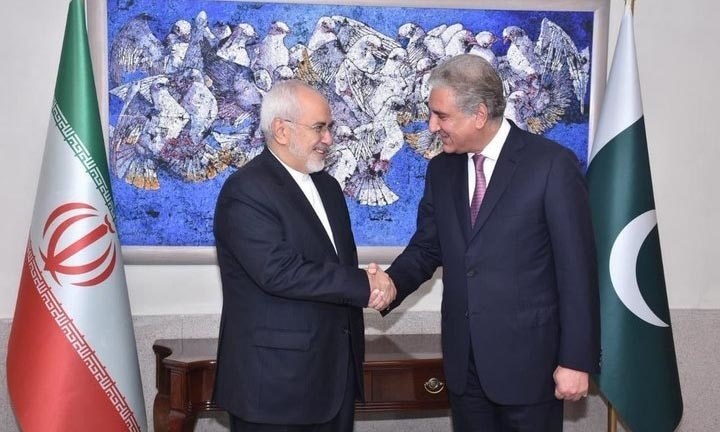Facing an economic crisis and expanding US sanctions — and disappointed in attempts at salvation from Europe — Iran is turning to Pakistan for assistance.
Iranian Foreign Minister Mohammad Javad Zarif held talks on Friday in Islamabad with high-level Pakistani officials, including newly-elected Prime Minister Imran Khan.
Zarif proclaimed that no third country can affect relations between the Islamic Republic and “important” Pakistan. He spoke of efforts for improved cooperation in border security as well as bolstering economic cooperation in areas such as banking and the Iranian and Pakistani ports of Chabahar and Gwadar.
Iran is also seeking a Pakistani move on the long-stalled Iran-Pakistan Gas Pipeline. Tehran has completed construction of much of its section of the 2,775-km (1,724-mile) pipeline, but Islamabad has delayed for years because of political issues and financial constraints.
Little detail was given of the discussions, including between Zarif and Pakistani counterpart Mahmood Qureshi and with Imran Khan, elected two weeks ago.
Fruitful meetings in Islamabad with PM @ImranKhanPTI, Army Chief, Speaker & Foreign & Finance Ministers. In my 8th trip to Pakistan, I was honored to be the first minister received by new govt. Emphasis on expanding bilateral, regional & global partnership. Neighbors our priority pic.twitter.com/4J69DVNGSc
— Javad Zarif (@JZarif) August 31, 2018
Instead, Iranian media highlighted Zarif’s denunciation of “US cognitive disorder and demagoguery unleashed by collapse of America’s moral compass” and his effective rebuke to Europe after little progress in talks on economic links: “[Iran is] the party to still honor the deal in deeds & not just words.”
Qureshi said he “supported Iran’s principled stance” on the 2015 nuclear deal, amid American withdrawal in May, and expressed the hope that remaining parties would uphold their commitments. He reiterated that Pakistan stands with Iran “in this hour of need”.
On Wednesday the Supreme Leader closed off the Rouhani Government’s talks with the Europeans: “There is no problem with negotiations and keeping contact with the Europeans, but you should give up hope on them over economic issues or the nuclear deal.”
The European Union has said that it will shield firms from US punishment, threatened against any company with American links which maintains business with the Islamic Republic; however, the EU has struggled with guarantees for large enterprises and banks.
As a result, many of Europe’s leading companies have drawn down or suspended their involvement in Iran. They include the French energy giant Total, French and German auto manufacturers PSA and Daimler, the world’s largest shipping container firm Maersk, French aircraft manufacturer Airbus, German engineering and rail firm Deutsche Bahn, and airlines Air France, KLM, and British Airways.

